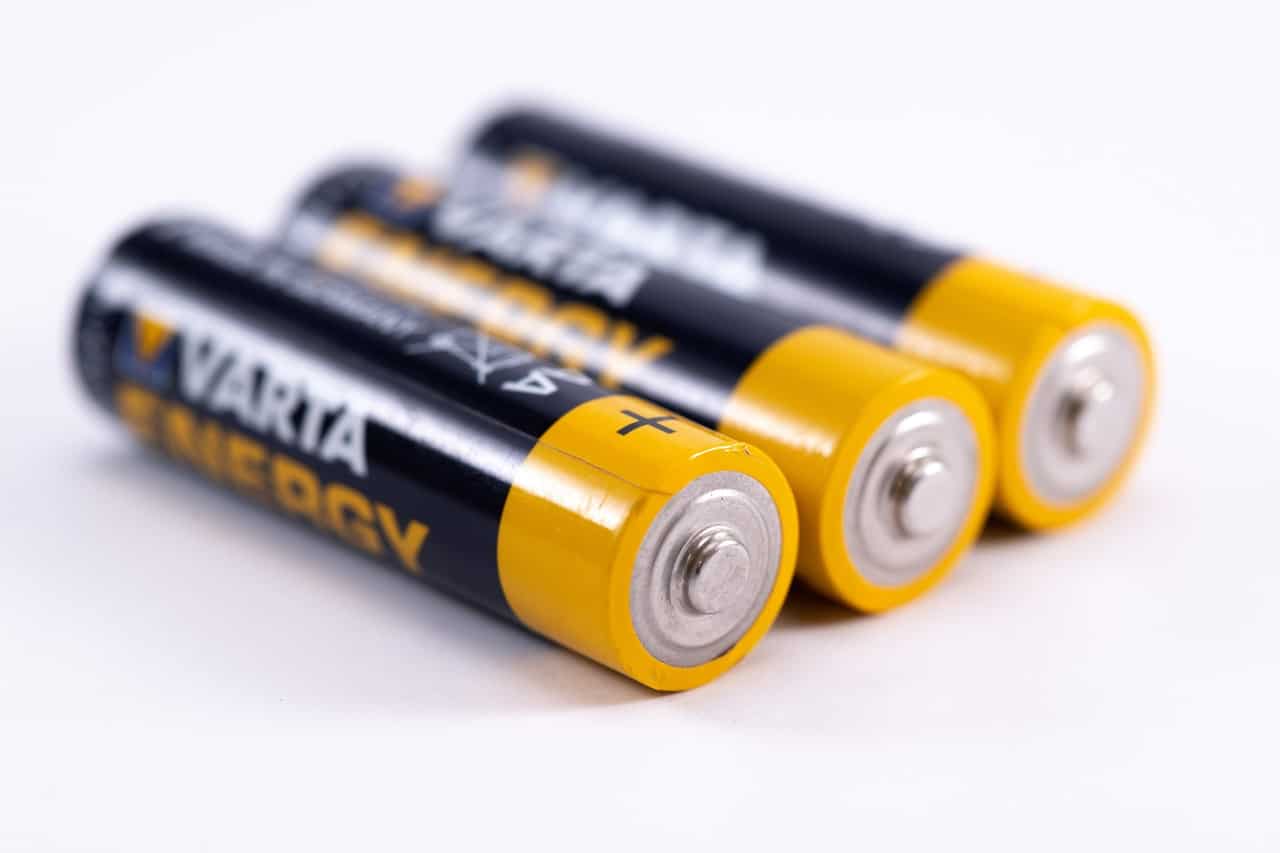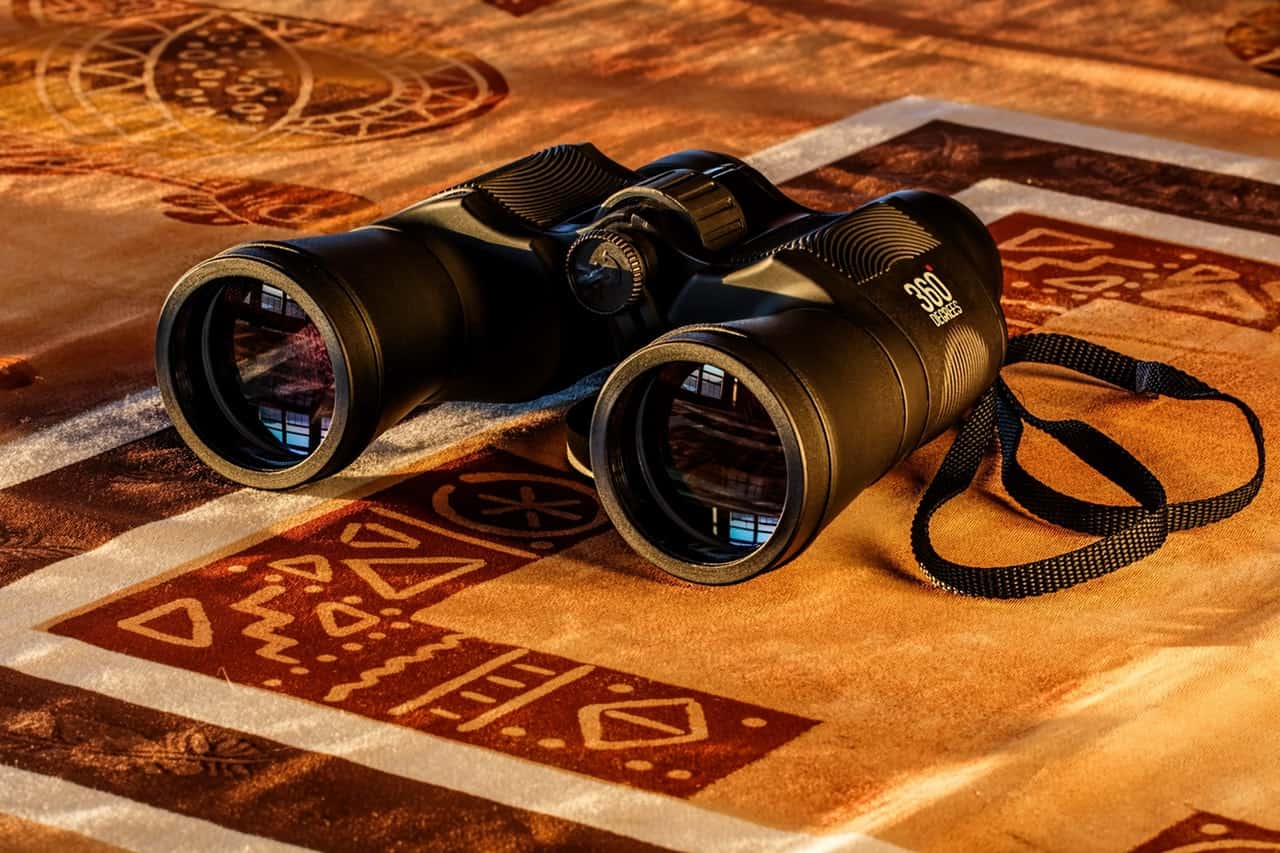Imagine watching your favourite bird up close, and suddenly, your binoculars are pitch-black. It isn’t night yet, so you wonder what happened. That’s the battery of the binoculars dying on you. So the question comes up,
Do binoculars use batteries? Which batteries? What is the hour usage per battery? This is a common question that people have when shopping for a new pair of binoculars. The answer is yes; most binoculars do use batteries. Generally, the most common battery type that binoculars use is AA or AAA batteries.
However, some models do not require batteries. These types of binoculars are typically more expensive and not as common.
Why Do Binoculars Have Batteries?
Binoculars are a type of optical instrument commonly used for things like bird watching, concerts, and other outdoor activities. While most binoculars don’t require batteries, some do – usually higher-end models.
So why do binoculars have batteries, and is it really necessary? The main reason why binoculars might have batteries is for image stabilization. This feature is especially useful if you’re using binoculars for bird watching, where even the slightest movement can make the image blurry. Image stabilization essentially reduces this problem by keeping the image focused, even if your hands are slightly shaking.
Some binoculars also have other features that require batteries, such as night vision or the ability to record video.
Do All Binoculars Need Alkaline Batteries?
No, not all binoculars need alkaline batteries.
Some models may require specific types of batteries, but most will work with various battery types. You should check your binoculars manual to see what type of battery it requires. If you’re using rechargeable batteries, make sure they are fully charged before using them in your binoculars.
The most common battery type that binoculars use is AA or AAA batteries. These batteries can be found almost anywhere and are relatively cheap to buy. The average lifespan of these batteries in binoculars is five years at least.
Do Binoculars Also Use Lithium Batteries?
Yes, some models of binoculars do use lithium batteries.
Lithium batteries are known for their high energy density and long life, making them ideal for binocular use. However, they can be more expensive than other types of batteries, so be sure to check the price before purchase.
Some higher-end models of binoculars will use CR123 or CR2 batteries. The average lifespan of these batteries in binoculars is around two to three years.
Are Alkaline Batteries Any Good?
Binoculars are a great way to get a closer look at things far away, but you need good batteries to power them. So, are alkaline batteries any good in binoculars?
The short answer is yes; alkaline batteries are good in binoculars. They are a reliable and affordable option that will power your binoculars for a long time. Additionally, alkaline batteries tend to have a longer shelf life than other batteries. That means you can stock up on them and have them on hand when you need them.
Are Lithium Batteries Better Than Alkaline Batteries?
If you are looking for the best possible performance from your binoculars, you may consider using lithium batteries. Lithium batteries tend to have a higher voltage than alkaline batteries, which can provide more power to your binoculars.
Additionally, lithium batteries tend to have a longer life span than alkaline batteries, so you won’t have to replace them as often.
Ultimately, whether to use alkaline or lithium batteries in your binoculars is up to you. Both types of batteries have their advantages and disadvantages. So, it’s important to weigh those factors before making a decision. If you need help choosing the right type of battery for your binoculars, consult with a qualified optician or binoculars expert.
Also Read: Do Red Dot Sights Need Batteries (& of what types)
How Long Do Binocular Batteries Last?
Binocular batteries can last for different amounts of time depending on the type of battery, the brand, how well they are cared for, and how often they are used. The average lifespan of a binocular battery is about five to seven years.
However, some binoculars may need their batteries replaced more frequently if they are used often or if the batteries are not properly cared for.
To extend the life of your binocular batteries, be sure to store them in a cool, dry place when they are not in use. Also, avoid exposing them to extreme temperatures. You should also avoid leaving them installed in your binoculars for long periods of time without using them, as this can shorten their lifespan. If you take good care of your batteries, they should last for several years.
Do Image Stabilized Binoculars Need Batteries (Lithium Or Alkaline)?
Image stabilized binoculars do need batteries, and of what type depends on the model. Some image-stabilized binoculars have a built-in rechargeable battery, while others require AA or AAA batteries. Be sure to check the manufacturer’s recommendations before purchasing batteries.
In general, lithium batteries offer the longest life and best performance in image-stabilized binoculars. However, they can be more expensive than alkaline batteries. If you are using your binoculars infrequently or for short periods, alkaline batteries may be a suitable option.
Do Night Vision Binoculars Need Batteries?
This is a common question that many users ask, and the answer is yes, they do require batteries. Night vision binoculars use a process called image intensification to amplify the available light, and this process requires electrical power.
Most night vision binoculars will use AA or AAA batteries, but some may require larger batteries. Be sure to check the specifications of the binoculars you are interested in to find out what type and size of batteries they require.
Why Do Night Vision Binoculars Need Alkaline Batteries?
There are a few reasons why alkaline batteries are the best choice for powering night binoculars. Besides being the cheaper option, they provide a steadier supply of power, which is important for getting the most out of your binoculars.
Alkaline batteries are much less likely to leak than other types of batteries. You won’t have to worry about damaging your binoculars if they happen to leak.

Binos enthusiast since I was 12 – A real expert in all things optics including rifle scopes and red dots. Live in Dubai & love writing, beaches and eating!






